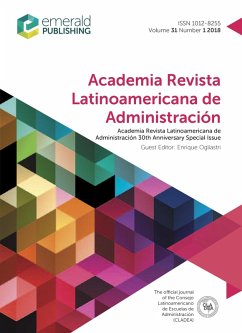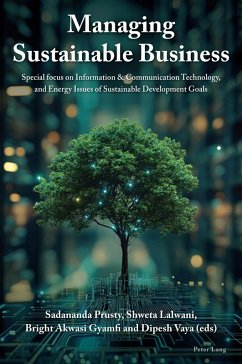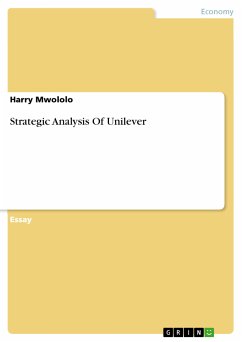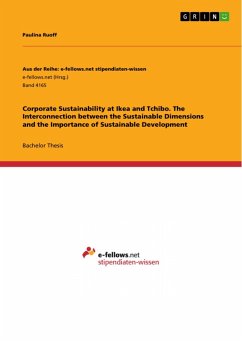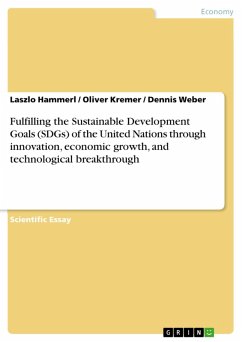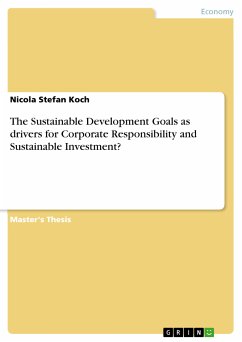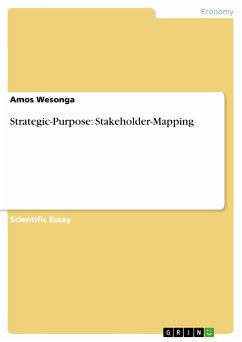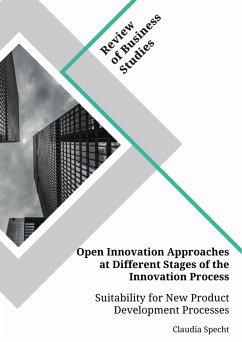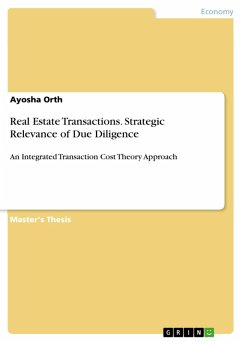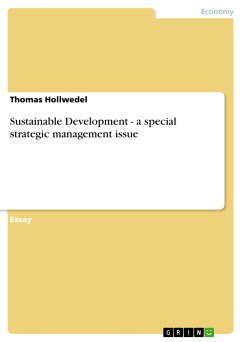
Sustainable Development - a special strategic management issue (eBook, PDF)

PAYBACK Punkte
0 °P sammeln!
Essay from the year 2002 in the subject Business economics - Miscellaneous, grade: 1.0 (A), University of Dusseldorf "Heinrich Heine" (Department for Economics, Production), course: Strategic Management - a process and its practical implementation, language: English, abstract: This paper is divided in three major parts. In the first one a definition of "sustainable development" and an overview about it's history and importance will be given before part two (chapter 3) will follow with the consequences and importance sustainable development has for business. In the third part (chapter 4) the au...
Essay from the year 2002 in the subject Business economics - Miscellaneous, grade: 1.0 (A), University of Dusseldorf "Heinrich Heine" (Department for Economics, Production), course: Strategic Management - a process and its practical implementation, language: English, abstract: This paper is divided in three major parts. In the first one a definition of "sustainable development" and an overview about it's history and importance will be given before part two (chapter 3) will follow with the consequences and importance sustainable development has for business. In the third part (chapter 4) the author will give an idea how sustainable development and strategic management can be linked. Finally the author will draw a brief conclusion. To have a common understanding throughout the text one of the most popular definition will be given. It's taken from the report "Our Common Future" published 1987 by the WCED better known as the "Brundtland-Commision": " is development that meets the needs of the present without compromising the ability of future generations to meet their own needs. It contains within two key concepts: the concept of , in particular the essential needs of the world's poor, to which overriding priority should be given; and the idea of limitations imposed by the state of technology and social organization on the environment's ability to meet present and future needs"1 The idea itself is not new and can be found in a lot of cultures e.g. the Indians say "Treat earth well - it is brought from your grandchildren." The important aspect of having this rather vague definition is that for the first time a definition on an international level was found and widely discussed by governments, NGOs, and the industry.2 1 Wagner, G.R. 1997, S.35 2 compare Matten, D.; Wagner, G.R. (1998), pp. 55-56.
Dieser Download kann aus rechtlichen Gründen nur mit Rechnungsadresse in A, B, BG, CY, CZ, D, DK, EW, E, FIN, F, GR, HR, H, IRL, I, LT, L, LR, M, NL, PL, P, R, S, SLO, SK ausgeliefert werden.





